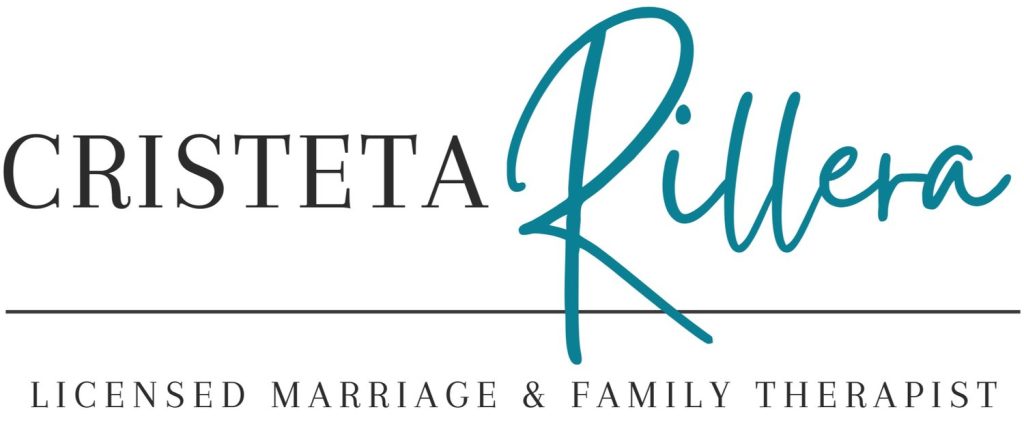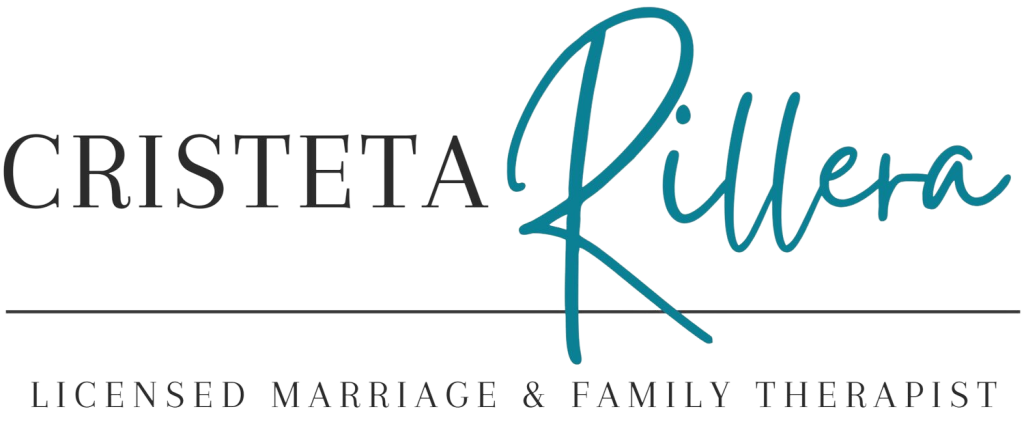What are Adverse Childhood Experiences (ACEs)?
Adverse Childhood Experiences, or ACEs, refer to traumatic events that occur during a person’s formative years and have lasting effects on their mental health and well-being. These experiences can range from abuse and neglect to witnessing violence or living with someone who has substance use issues. Understanding the types of ACEs and their impact is crucial for individuals seeking help overcoming these challenges.

Definition of ACEs
The Centers for Disease Control and Prevention (CDC) defines Adverse Childhood Experiences as potentially traumatic events before age 18. These experiences may directly harm a child physically, emotionally, or mentally or indirectly affect them by creating an unstable environment.
Types of ACEs
- Physical abuse: Deliberate acts causing injury or bodily harm to a child.
- Emotional abuse: Verbal attacks, humiliation, rejection, isolation, or other actions that cause emotional distress in children.
- Neglect: The failure to provide basic needs such as food, clothing, and sheltering medical care resulting in physical/emotional harm.
- Sexual Abuse: Inappropriate sexual contact between an adult/older adolescent & a child, including non-contact activities like exposure/exhibitionism & voyeurism, etc., which might lead to psychological trauma later on.
- Household dysfunction: Witnessing domestic violence, parental separation/divorce, having family members with mental health issues or substance abuse problems, and having an incarcerated family member.
Impact of ACEs
Adverse Childhood Experiences can have long-lasting effects on a person’s mental, emotional, and physical health. According to the CDC, individuals with multiple ACEs are at higher risk for developing chronic health conditions such as heart disease, diabetes, depression, anxiety disorders, and substance use disorders. Additionally, these experiences may lead to difficulties in forming healthy relationships and maintaining stable employment.
Adverse childhood events can have a deep, lasting effect on someone’s life and well-being, yet with the proper assistance; they don’t need to be defining factors. Fortunately, there are many therapeutic options available that can help individuals process their ACEs to lead healthier lives.
How Can Therapy Help with Adverse Childhood Experiences?
Therapy can be a powerful tool in addressing the lasting effects of Adverse Childhood Experiences (ACEs). A trained therapist can provide a safe environment for those who have endured ACEs to comprehend and manage their feelings, establish constructive coping mechanisms and foster strength for upcoming struggles.

Benefits of Therapy for ACEs
- Emotional processing: Therapy provides a safe space to explore and process difficult emotions related to childhood trauma.
- Coping skills development: A therapist can teach effective coping mechanisms that help manage stressors associated with ACEs.
- Increase self-awareness: Through therapy, clients gain insight into how past experiences impact their behaviors and relationships.
- Fostering resilience: Developing emotional strength through therapy helps individuals bounce back from setbacks more effectively.
Type of Therapies for ACEs
Different therapeutic strategies may be implemented depending on the person’s particular requirements. Some common therapies include:
- Cognitive Behavioral Therapy (CBT): A short-term approach focused on changing negative thought patterns. Dialectical Behavior Therapy (DBT): An evidence-based treatment that teaches mindfulness, emotion regulation, distress tolerance, and interpersonal effectiveness skills.
- Eye Movement Desensitization and Reprocessing (EMDR): A trauma-focused therapy that helps clients process traumatic memories using bilateral stimulation, such as eye movements or tapping. Family Systems Therapy: An approach that addresses family dynamics and communication patterns to promote healing within the entire family unit.

Finding the Right Therapist for You
Selecting a therapist experienced in working with individuals affected by ACEs is crucial. Consider these factors when searching for a therapist:
- Credentials and experience: Look for a licensed mental health professional with expertise in treating childhood trauma.
- Theoretical orientation: Find out the therapist’s therapeutic approaches, ensuring they align with your needs.
- Rapport and trustworthiness: It’s essential to feel comfortable sharing personal experiences with your chosen therapist. Trust your instincts during initial consultations.
Psychology Today’s directory of therapists, can be an excellent resource for finding professionals specializing in ACE-related treatment.
Therapy can be a potent means of addressing the ramifications of negative childhood experiences and helping people to manage them. By learning coping strategies, such as self-care and mindfulness techniques, and building a support system, you can begin to find relief from ACEs.
Coping Strategies to Manage Adverse Childhood Experiences
Learning how to cope with the effects of adverse childhood experiences (ACEs) is crucial for individuals who have experienced trauma in their early years. Developing healthy coping strategies can help improve mental health, emotional well-being, and overall quality of life. This section will discuss various self-care strategies, mindfulness techniques, and ways to build a support system to manage ACEs.
Self-Care Strategies for Managing ACEs
Prioritize physical health: Taking care of your body through regular exercise, proper nutrition, and adequate sleep can significantly impact your ability to manage stress and emotions related to ACEs. Regular exercise has been shown to reduce stress and improve cognitive function.
Create a safe environment: Ensuring you have a comfortable living space where you feel secure is essential when dealing with the aftermath of traumatic events from childhood. This may include setting boundaries with others or creating routines that promote stability.
Maintain hobbies and interests: Engaging in activities you enjoy helps take your mind off negative thoughts while providing an outlet for creativity and self-expression.
Acknowledge accomplishments: Recognizing personal achievements boosts self-esteem, which is vital in overcoming adversity from past traumas.

Mindfulness Techniques to Cope with ACEs
Mindfulness practices such as meditation or deep breathing exercises can effectively manage symptoms associated with adverse childhood experiences by promoting relaxation responses within the body. Research has shown that mindfulness-based interventions can help reduce symptoms of anxiety, depression, and post-traumatic stress disorder (PTSD).
Some popular mindfulness techniques include:
- Mindful breathing exercises: Focusing on your breath as you inhale and exhale helps to anchor the mind in the present moment.
- Body scan meditation: This practice involves mentally scanning each part of your body for sensations or tension while promoting relaxation.
- Gentle yoga or stretching: Engaging in slow, mindful movements can help release physical tension related to emotional stress
Building a Support System to Cope with ACEs
A strong support system is essential when dealing with adverse childhood experiences. Connecting with others who have experienced similar challenges provides an opportunity for shared understanding and empathy. There are several ways to build a support network tailored to individual needs:
- Talk therapy: Incorporating regular sessions with a licensed therapist like Cristeta Rillera, LMFT, specializing in trauma therapy, can provide valuable guidance throughout the healing process.
- Social connections: Cultivating relationships with friends and family members who offer encouragement and understanding during difficult times is crucial for emotional well-being.
- Patient advocacy groups: Finding local organizations that cater specifically to individuals affected by ACEs may provide additional resources, such as group therapy sessions or educational workshops designed around managing trauma-related issues.
Addressing the aftermath of unpleasant early life occurrences can be hard, but knowing the repercussions of trauma and how to handle it is necessary to make progress. In this section, we will discuss what trauma is, its impact on mental health, and the treatments available for those affected by traumatic events.
Understanding Trauma and Its Effects on Mental Health
Trauma is a deeply distressing or disturbing experience that can have long-lasting effects on an individual’s mental health. This section will examine trauma, its manifestations, and potential therapies to assist those who have experienced it.
Definition of Trauma
Trauma is a term that characterizes an occurrence or set of occurrences that overwhelms one’s capacity to adapt, causing feelings of powerlessness and extraordinary pressure. Trauma can stem from physical or mental incidents, like maltreatment, negligence, accidents, catastrophes, or seeing violence. The effects of trauma are not universal; each person may experience different levels of distress or be affected differently. It is essential to recognize that everyone’s response to trauma is unique and valid.

Symptoms of Trauma
The symptoms associated with trauma can manifest differently for each individual but often include:
- Anxiety and fear
- Depression
- Irritability and anger
- Mood swings
- Nightmares or flashbacks related to the traumatic event(s)
- Difficulty concentrating or making decisions
- Physical symptoms such as headaches, stomachaches, or fatigue
These symptoms may persist long after the traumatic event has passed, leading some individuals toward chronic mental health issues. If you are experiencing these symptoms following a traumatic experience, it’s important to seek professional support (source).
Treatments for Trauma
Various evidence-based treatments are available to help individuals heal from trauma and regain control over their lives. Some of the most common therapies include:
- Cognitive Behavioral Therapy (CBT): CBT is a short-term, goal-oriented therapy that helps individuals identify and change negative thought patterns related to their traumatic experiences. (source)
- Eye Movement Desensitization and Reprocessing (EMDR): EMDR is a psychotherapy technique designed to help individuals process traumatic memories using bilateral stimulation such as eye movements or tapping (source).
- Trauma-Focused Cognitive Behavioral Therapy(TF-CBT): TF-CBT is specifically tailored for children and adolescents who have experienced trauma. It combines cognitive behavioral therapy with family interventions, helping young people develop coping skills while addressing any underlying issues within the family dynamic.
Finding the right treatment approach can be essential in overcoming trauma’s effects on mental health. Working with a licensed therapist like Cristeta Rillera, LMFT, can provide personalized support, guidance, and tools to begin your healing journey.
Comprehending the repercussions of trauma on psychological well-being is imperative for providing effective treatment. Moving forward after adverse childhood experiences can be difficult, but with proper guidance and support, individuals can find meaning and purpose despite their traumatic pasts.
Moving Forward After Adverse Childhood Experiences
Processing the impacts of ACEs is a lengthy, painstaking process that necessitates understanding and backing. It’s essential to acknowledge your past while focusing on building a brighter future for yourself. In this section, we will discuss how you can grieve the losses associated with ACEs, create a positive outlook after experiencing them, and find meaning and purpose in life.
Grieving the Losses Associated with ACEs
Grieving is an important part of healing from any traumatic experience. When it comes to ACEs, many aspects of your life may require grieving – such as lost opportunities or relationships due to trauma-related issues. To begin processing these emotions:
- Allow yourself to experience the sadness or anger associated with your past trauma.
- Seek professional help: A qualified trauma therapist can provide assistance in processing your grief and offer effective methods of managing the impact of ACEs.
- Create rituals: Develop personal rituals that honor what was lost – for example, lighting candles or writing letters to those affected by ACEs.

Creating a Positive Outlook After Experiencing ACEs
Focusing on positivity doesn’t mean ignoring pain; instead, it involves cultivating hope despite challenging circumstances. Here are some tips for creating a more positive outlook:
- Practice gratitude: Regularly express appreciation for big and small things in your life – this helps shift focus away from negative thoughts related to past traumas.
- Nurture self-compassion: Treat yourself kindly when dealing with difficult emotions stemming from adverse childhood experiences – remember that everyone makes mistakes along the way.
- Set realistic goals: Establish achievable objectives that align with your values and passions, allowing you to experience success and build self-esteem.
Finding Meaning and Purpose After Experiencing ACEs
Discovering meaning in life can be transformative for individuals who have experienced adverse childhood experiences. To find purpose:
- Explore new interests: Engage in activities or hobbies that bring joy, satisfaction, or relaxation – these pursuits may lead to newfound passions or career paths.
- Connect with others: Build supportive relationships by joining clubs, attending support groups, or volunteering – connecting with people who share similar experiences can provide valuable insights into overcoming ACE challenges.
- Pursue personal growth: Embrace opportunities for learning and development through therapy sessions, workshops on mindfulness techniques (getting started guide here), reading books about trauma recovery (like “The Body Keeps the Score” by Bessel van der Kolk), or engaging in spiritual practices that resonate with you.
Moving forward after experiencing adverse childhood experiences is possible. By grieving losses associated with ACEs, creating a positive outlook on life despite past traumas, and finding meaning and purpose in your journey toward healing – you’ll be well-equipped to overcome debilitating fear while leading an authentic life filled with hopefulness for the future.
Frequently Asked Questions
An adverse childhood experiences (ACEs) journal article refers to a scientific publication that discusses the various types of ACEs, their impact on children’s mental and physical health, and potential interventions or therapies. Researchers and experts in psychology, social work, or related fields typically write these articles. They provide valuable insights into understanding and addressing the long-term effects of ACEs. One notable study is the CDC-Kaiser Permanente Adverse Childhood Experiences Study.
The term “adverse childhood experiences” encompasses many traumatic events during childhood. However, four common categories include:
- Physical abuse
- Emotional abuse
- Sexual abuse
- Neglect
These categories can be further divided into subcategories to encompass additional forms of trauma, such as witnessing domestic violence or living with substance-abusing family members.
Three specific examples of adverse childhood experiences include:
- Witnessing parental divorce or separation.
- Living with a parent who has a mental illness.
- Experiencing bullying at school.
These events can have lasting psychological impacts on children and contribute to increased risk for various health issues later in life.
Adverse Childhood Experiences (ACEs) can lead to significant short- and long-term consequences for children’s mental, emotional, and physical well-being; they may experience anxiety, depression, PTSD symptoms, and other mental health issues. ACEs are also linked to increased risk for substance abuse, poor academic performance, and chronic health conditions such as heart disease and obesity later in life.
Conclusion
ACEs can majorly affect an individual’s psychological well-being and connections. Understanding the types of ACEs, their effects, and coping strategies can help individuals move forward after experiencing trauma.
Therapy is an effective way to manage the effects of ACEs, with various options available depending on personal needs. Self-care strategies such as mindfulness techniques and building a support system can also aid in managing symptoms.
If you or someone you know has experienced Adverse Childhood Experiences, seeking therapy from a qualified professional like Cristeta Rillera can help support healing and growth.










